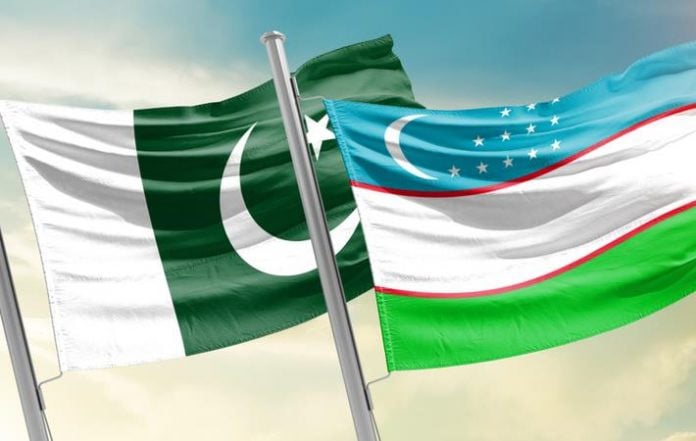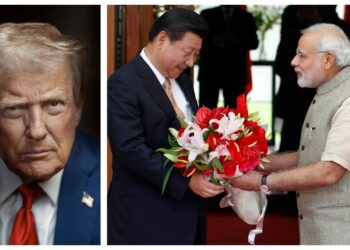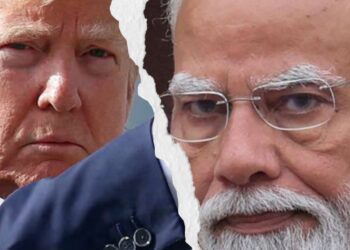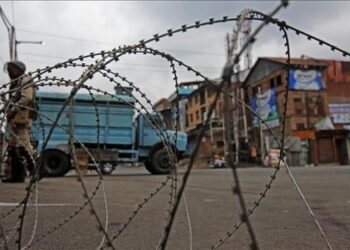ISLAMABAD; Bilateral relations between Uzbekistan and Pakistan are undergoing a significant transformation, with both nations taking concrete steps to elevate their partnership to a strategic level. In a detailed media briefing hosted at the Embassy of Uzbekistan in Islamabad, officials outlined recent progress and future plans across key sectors including trade, transport, cultural diplomacy, and high-level political dialogue.
Over the past few years, Uzbekistan and Pakistan have witnessed notable growth in their relationship, driven by shared history, cultural bonds, mutual economic interests, and strong political will at the highest levels of leadership. A landmark in this deepening partnership was Prime Minister Shehbaz Sharif’s two-day official visit to Uzbekistan in February 2025, which culminated in the signing of a Joint Declaration and the establishment of a Strategic Partnership Council.
During the visit, both sides inked agreements on cooperation in science and technology, youth policy, vocational education, and inter-ministerial coordination, including visa-free travel for diplomatic passport holders. A joint “Roadmap” was developed to implement these commitments efficiently.
Particularly important was the agreement to fast-track the Trans-Afghan railway project, which seeks to link Uzbekistan, Afghanistan, and Pakistan, creating a vital trade corridor connecting Central and South Asia. This trilateral connectivity initiative gained further momentum with a Framework Agreement signed in Kabul on July 17, 2025, by the transport ministers of the three countries.
On the sidelines of multilateral forums, including the Economic Cooperation Organization (ECO) Summit in July and the Inter-Parliamentary Union Assembly in April, leaders from both countries have reiterated their commitment to enhancing cooperation. Parliamentary diplomacy has also played a growing role, with regular interactions and exchanges of delegations.
The economic dimension of this partnership continues to strengthen. In 2024, bilateral trade between the two countries surpassed USD 400 million, and in the first half of 2025 alone, trade volume hit USD 253.7 million — a 123% increase from the previous year. Uzbekistan has emerged as Pakistan’s largest trading partner in Central Asia, reflecting deepening business ties.
Efforts to reach a USD 2 billion trade target include expanding the Preferential Trade Agreement (PTA), enhancing logistics, and removing trade barriers. Uzbekistan and Pakistan have also opened bilateral Trade Houses in Lahore and Karachi and are working on joint banking mechanisms to ease transactions.
Three major trade exhibitions held in Lahore, Islamabad, and Karachi under the “Made in Uzbekistan – 2025” banner showcased products across industries. These events attracted thousands of participants and yielded investment agreements worth over USD 120 million.
On the cultural front, Uzbekistan has eased visa restrictions for Pakistani citizens and launched direct flights between Tashkent and Lahore and Tashkent and Islamabad to promote tourism and cultural exchanges.
Several high-profile cultural events have taken place over the past year, including Uzbekistan’s prominent presence at Pakistan’s Lok Mela festival, a special pavilion at the Islamabad Charity Bazaar, and collaborative exhibitions organized with the Silk Road Cultural Center. In March 2025, Nowruz celebrations and a major tourism showcase drew wide public interest.
Additionally, a youth and entrepreneurship forum, student exchange initiatives, and joint academic programs are helping foster closer people-to-people links. A group of Pakistani motorcyclists launched a “Central Asia Tour 2025” passing through Uzbekistan, symbolizing grassroots-level cultural engagement.
Regular exchanges between ministers and officials have also been a hallmark of this growing cooperation. From participation in climate and cultural forums in Samarkand to legal and entrepreneurship events in Tashkent, the partnership is diversifying across sectors.
Looking ahead, both governments are working to finalize a trilateral transit trade agreement involving Afghanistan, and establish a joint transport and logistics company. Uzbekistan aims to expand its trade routes by utilizing Pakistan’s ports of Karachi and Gwadar as gateways to South Asia and beyond.
Officials urged Pakistani media to promote the message of collaboration and outlined ten key reasons to engage with Uzbekistan’s growing economy, including its strategic location, business-friendly environment, low-cost utilities, skilled workforce, and rich natural resources.
In conclusion, Uzbek officials extended a warm invitation to Pakistani businesses, tourists, and institutions to visit Uzbekistan and deepen ties. The upcoming meeting of the Uzbekistan-Pakistan Intergovernmental Commission later this year is expected to further cement this strategic and multifaceted partnership.

























